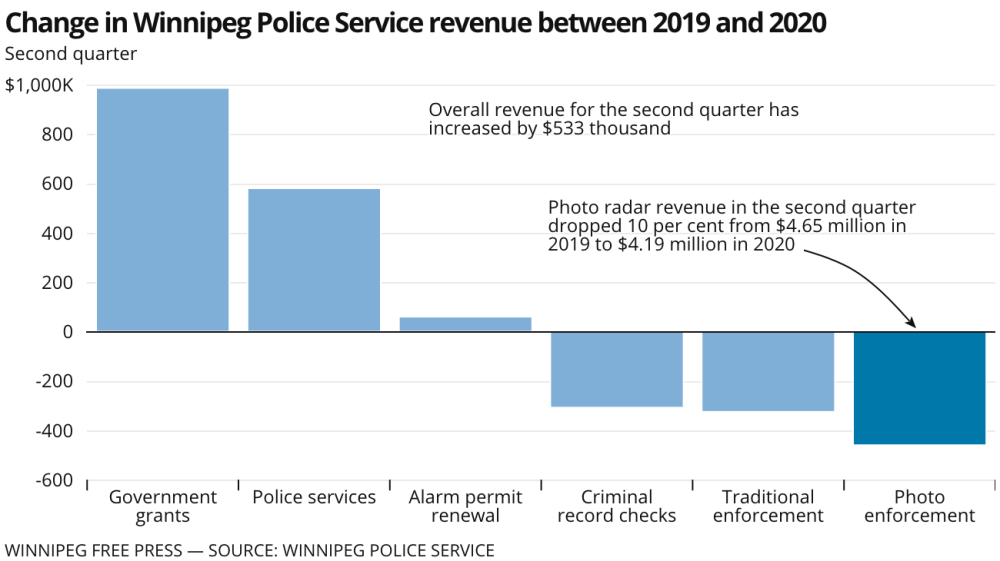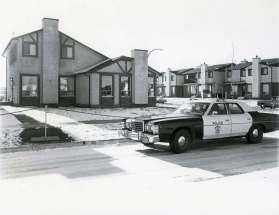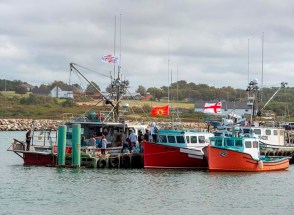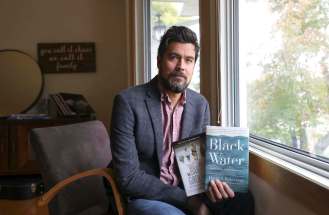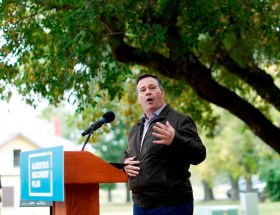Winnipeg police ticket revenue heads south amid pandemic
Read this article for free:
or
Already have an account? Log in here »
To continue reading, please subscribe:
Monthly Digital Subscription
$0 for the first 4 weeks*
- Enjoy unlimited reading on winnipegfreepress.com
- Read the E-Edition, our digital replica newspaper
- Access News Break, our award-winning app
- Play interactive puzzles
*No charge for 4 weeks then price increases to the regular rate of $19.00 plus GST every four weeks. Offer available to new and qualified returning subscribers only. Cancel any time.
Monthly Digital Subscription
$4.75/week*
- Enjoy unlimited reading on winnipegfreepress.com
- Read the E-Edition, our digital replica newspaper
- Access News Break, our award-winning app
- Play interactive puzzles
*Billed as $19 plus GST every four weeks. Cancel any time.
To continue reading, please subscribe:
Add Free Press access to your Brandon Sun subscription for only an additional
$1 for the first 4 weeks*
*Your next subscription payment will increase by $1.00 and you will be charged $16.99 plus GST for four weeks. After four weeks, your payment will increase to $23.99 plus GST every four weeks.
Read unlimited articles for free today:
or
Already have an account? Log in here »
Hey there, time traveller!
This article was published 21/09/2020 (1904 days ago), so information in it may no longer be current.
Traffic enforcement revenue for the Winnipeg Police Service is on the decline this year, driven by unenforced school zones and decreased road traffic in the opening months of the novel coronavirus pandemic.
According to the second-quarter WPS budget, which will be brought to the Winnipeg Police Board on Thursday, photo radar revenue has dropped 10 per cent — from $4.65 million in 2019 to $4.19 million in the same period of 2020 — and is projected to come in nearly $5 million under budget by year’s end.
Similarly, traditional traffic enforcement dropped 19 per cent in the second quarter (from $1.23 million by July 2019 to $905,000 by July 2020) and is projected to close out the year almost $1 million under budget.
Coun. Markus Chambers (St. Norbert-Seine River), chairman of the police board, attributed the revenue decline to the unusual traffic patterns caused by pandemic restrictions. With children out of school and more employees asked to work remotely, traffic in the spring months decreased significantly, he said in an interview Monday.
Police and third-party services did not enforce speeding violations in school zones, and less traffic blew through summer construction sites, plugging up the source of nearly 40 per cent of WPS usual revenues.
The impact pandemic-era driving habits may be felt for some time, Chambers noted.
“It all depends I guess on COVID. It’s just part of our new normal; more and more people are working from home, less and less traffic on the roads,” he said. “It could be ripple effect that would be more permanent.”
Chambers said the WPS would be providing the board with recommendations to identify priorities that would need to be maintained as revenues shift. The board plans to measure those priorities against feedback from the public to determine how best to adjust the service’s budget going forward, and ensure services meet the public’s needs.
“Whether it’s domestic violence, whether it’s addictions, mental health, runaway kids, those are all things we look at to see how we can better align the services that are required for those individuals calling for that service as opposed to being a badge and gun response,” Chambers said.
Traffic safety often ranks second or third for the public, in terms of policing priorities, Chambers said.
“It all depends I guess on COVID. It’s just part of our new normal; more and more people are working from home, less and less traffic on the roads. It could be ripple effect that would be more permanent.” — Coun. Markus Chambers (St. Norbert-Seine River) and chairman of the police board
However, less traffic on the roads through the pandemic has resulted in higher speeds recorded among those who choose to speed on residential roads, he added. Areas such as Kenaston Boulevard, between Bishop Grandin Boulevard and the Perimeter Highway, have been “the bane of enforcement existence” this year, marked by a rise in drag racing, he said.
Meanwhile, lower revenues and higher expenditures are expected overall for city policing this year — officers are being hired less for special duty enforcement (such as pro sports games), personal protective equipment has been added to the service’s bottom line, and salaries have increased 2 1/2 per cent based on the collective agreement.
Salaries and benefits — which typically make up around 87 per cent of the police budget by second quarter — are up four per cent already, and projected to be nearly $4 million over budget by year’s end, owing to adjusted pension agreements with the city and a built-in salary increase to be reviewed in 2021.
While overtime and other police service expenditures are down, and government grants have seen a significant increase, the WPS still expects expenses to come in $4.74 million over budget this year, while revenues are expected to drop by $3.5 million.
The WPS did not respond to Free Press requests for comment by publication time.
julia-simone.rutgers@freepress.mb.ca
Twitter: @jsrutgers

Julia-Simone Rutgers is a climate reporter with a focus on environmental issues in Manitoba. Her position is part of a three-year partnership between the Winnipeg Free Press and The Narwhal, funded by the Winnipeg Foundation.
Our newsroom depends on a growing audience of readers to power our journalism. If you are not a paid reader, please consider becoming a subscriber.
Our newsroom depends on its audience of readers to power our journalism. Thank you for your support.
History
Updated on Monday, September 21, 2020 10:01 PM CDT: Fixes typo

